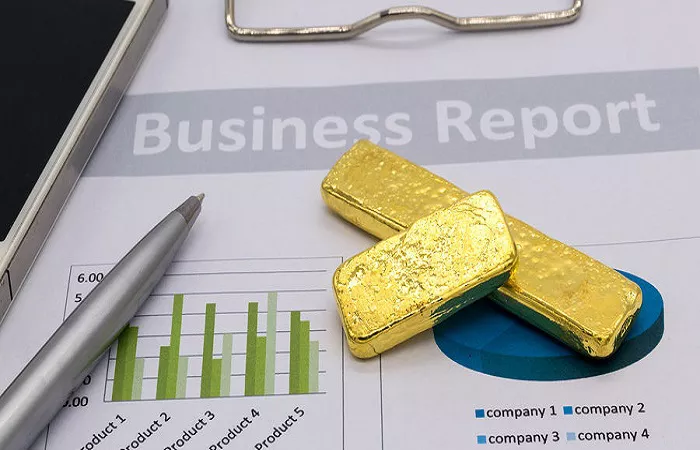The global demand for gold has surged, driven by central banks and investors seeking to diversify their reserves and hedge against risks associated with the U.S. dollar, sanctions, and broader economic uncertainties. Since early 2024, central banks have been at the forefront of this trend, increasing their gold reserves to bolster financial stability in an era of heightened geopolitical and economic tensions. This shift has pushed gold prices to record highs, with significant inflows into gold-backed exchange-traded funds (ETFs) as well.
Gold’s Rising Role in Global Reserves
According to JPMorgan, central banks have not yet completed their “de-dollarization” process, with many emerging markets—especially China, India, and Saudi Arabia—aggressively increasing their gold holdings. These nations have raised the share of gold in their official reserves to nearly 20%, signaling a strategic move away from the U.S. dollar as a dominant reserve asset.
As central banks prioritize diversification, gold’s appeal as a hedge against stagflation, recession, and policy risks has grown. Investors, too, are recognizing gold’s value in protecting against economic uncertainty, which has driven further demand for the precious metal.
Kenya’s Interest in Gold Reserves
Kamau Thugge, Governor of Kenya’s Central Bank, recently voiced the country’s interest in adding gold to its foreign exchange reserves. Speaking at the IMF and World Bank Spring Meetings in Washington, Thugge highlighted that the country has set up a working group to assess the feasibility of including gold in its reserves, although no timeline for this decision has been set. This move is part of Kenya’s broader strategy to reduce its reliance on the U.S. dollar and other foreign currencies, thus strengthening its economic resilience.
Thugge’s comments come as Kenya navigates a challenging global economic environment. The country’s recent economic developments include the early termination of its $3.6 billion IMF program in March due to unmet targets, costing Kenya approximately $850 million. Despite these setbacks, Thugge expressed optimism about Kenya’s economic growth, projecting that 2025 growth would significantly exceed the 4.6% estimated for the previous year, despite potential challenges from U.S. tariffs.
Economic Outlook for Kenya
Looking ahead, the Governor remains confident that Kenya’s economic growth will be supported by favorable weather conditions for agriculture, a critical sector for the nation’s economy. Additionally, the central bank is loosening monetary policy, with lower interest rates expected to stimulate investment and consumer spending. This easing of financial pressures signals a more positive outlook for Kenya’s economy in 2025, despite external challenges.
In summary, the increasing demand for gold among central banks, including Kenya’s consideration of adding gold to its reserves, underscores the growing trend of de-dollarization and the search for safer, more stable assets in a volatile global economy.
Related topics:
- India Surpasses China in Gold Purchases, Buying 51% More in Three Months
- Qilu Bank Enhances Support for Small Businesses with Innovative Financial Tools
- Bitcoin Poised for a Surge Amid Gold’s Delivery Delays, Expert Claims


